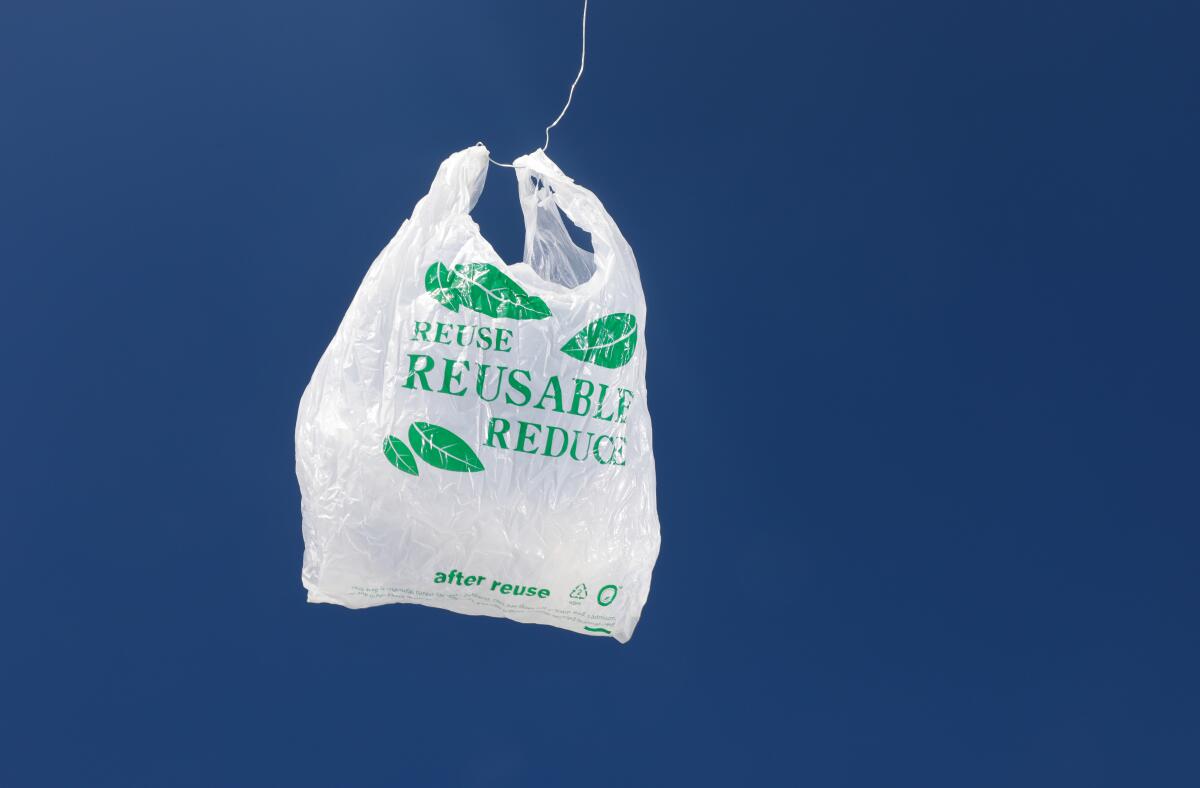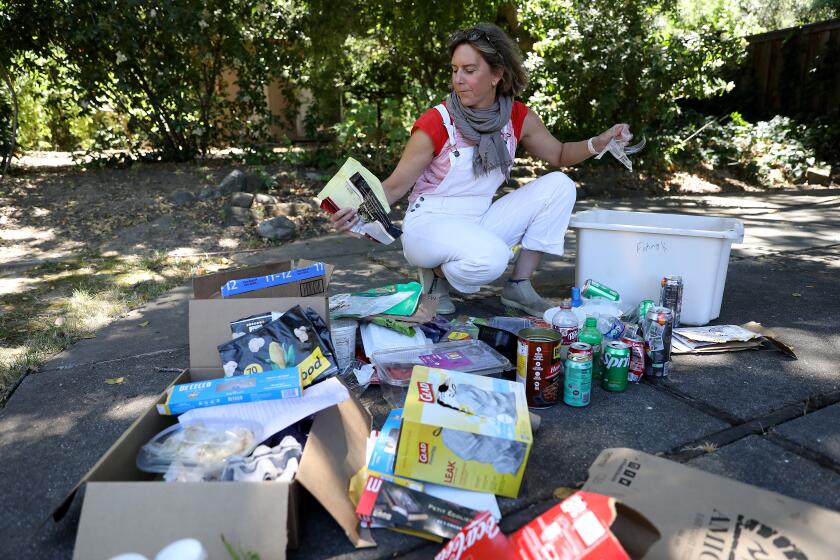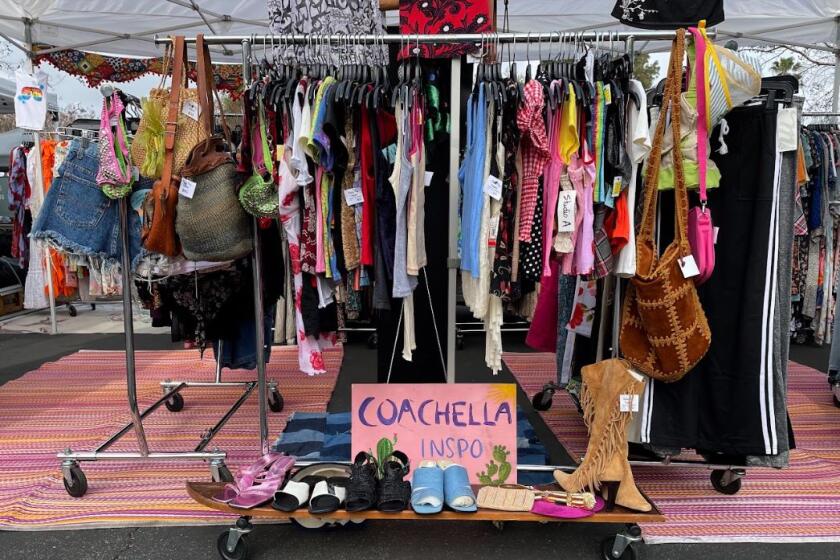Editorial: Does California need another plastic bag ban? It seems so

- Share via
Nine years ago California banned grocery stores from giving out flimsy single-use plastic grocery bags, the first state to do so. And the law has been facing obstacles ever since.
Days after it passed in 2014, Senate Bill 270 was put on hold for two years while the plastic bag makers spent millions of dollars trying repeal it through a ballot referendum. They failed; California voters backed the ban.
A few years later, when consumers were easily adapting to life without those 13 billion bags every year, the ban was suspended during the COVID-19 pandemic. For a couple of horrible months, those dastardly bags (sometimes called urban tumbleweeds for their tendency to fly out of trash cans and landfills) reappeared at grocery store checkouts. Some stores at the time even prohibited customers from bringing their reusable bags from home, ostensibly for fear of contagion.
And now it turns out that the ban had loopholes so wide you could drive a trash truck through them. For one, it turns out the reusable and “recyclable” heavier plastic bags that the law allowed grocers to provide for a fee of no less than 10 cents are not as recyclable or reusable as envisioned, an L.A. Times investigation found.
California’s plastic bag ban aimed to reduce waste and increase recycling, but it hasn’t worked out as planned. What went wrong?
The law also left too many retail outlets off the hook, including farmers market stands, restaurants and other stores that were still free to distribute the thin single-use plastic bags. So perhaps it’s no surprise that California’s pioneering law is failing to deliver on its promise of slowing the flow of single-use plastic.
There’s really only one acceptable option. It’s time to double down and — finally — get rid of plastic bags.
Plastics are everywhere. As an environment reporter, I make informed choices when shopping, trying to minimize the amount I bring in. Or I thought I was.
There is an argument that California already has the tools it needs to get rid of plastic bags, though it’s a bit convoluted. The original ban in 2014 allowed grocery stores to hand out thicker plastic carryout bags for a fee so long as the bags were recyclable and durable enough to be used 125 times. (They can also sell paper bags.)
In 2021, the Legislature passed Senate Bill 343, which prohibits manufacturers from using a “chasing arrows” symbol on their products, or claiming they are recyclable, starting next year unless those products are actually being recycled in a meaningful way in California (which means they can be recycled in at least 60% of the state).
But the heavier replacement plastic bags aren’t being recycled at a significant level, and have become de facto disposable bags. None of the recycling centers in California that Times reporters contacted accepts the thicker “recyclable” grocery bags. Therefore, they shouldn’t be allowed to be sold in California under SB 343, right?
Still, it would better and less confusing if lawmakers adopted another bag ban that is tougher, goes further and clearly communicates to the public and retailers that disposable plastic bags of all sorts are no longer welcome in the Golden State. (Another recently passed law prohibits grocers from handing out single-use plastic produce bags starting in 2025.)
Editorial: Your clothes are polluting the environment with microplastics. Can washing machines help?
Most clothing is made with synthetic, or plastic, materials. When they shed, they add to the scourge of microplastic. Washing machine filters may help.
We think this is the job for Sen. Ben Allen (D-Santa Monica), who has been the Legislature’s leading champion for reducing plastic waste in recent years and is also dismayed by the “woefully underperforming” bag ban. He is the author of SB 343 and the landmark SB 54 — a law passed last year that will protect the state’s environment by phasing out most unrecyclable plastic packaging, starting in 2028.
California was the first state to ban single-use plastic bags, but that law has proved to be less than adequate. New York’s statewide single-use plastic bag ban, for example, is better, affecting many more retailers and not allowing the distribution of heavier plastic “recyclable” bags (though it too has had implementation problems since it became effective in 2020). With nine years of hindsight, California can do better too.
More to Read
A cure for the common opinion
Get thought-provoking perspectives with our weekly newsletter.
You may occasionally receive promotional content from the Los Angeles Times.













